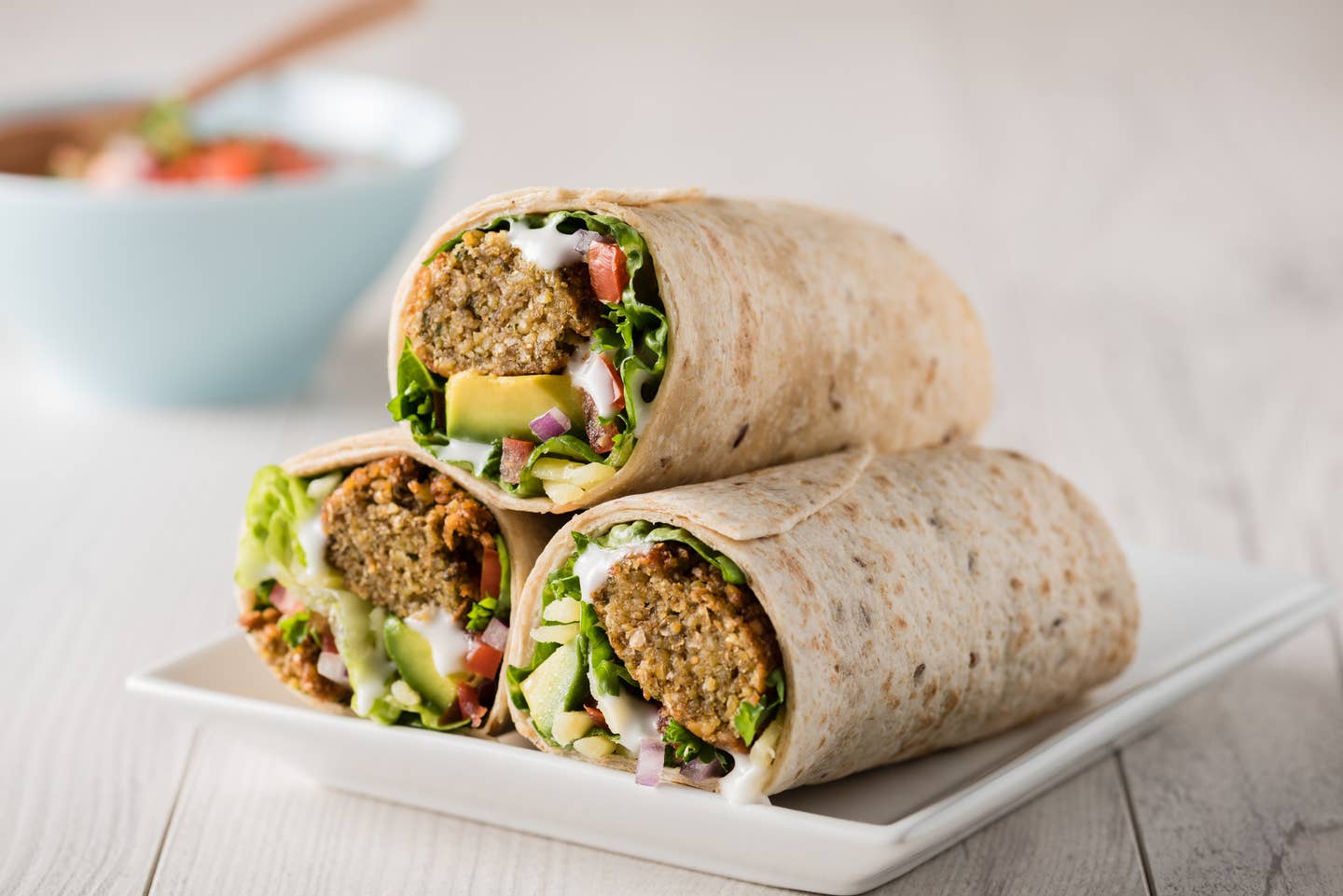
These 7 Traditional Healthy Recipes from Around the Globe are Plant-Based
During COVID-19, by now you’ve probably made all of your go-to plant-based dishes a couple of dozen times. For those of you who are getting a bit tired of your regular homemade vegan menu, we’ve pulled together some of our favorite traditional vegan dishes from around the globe that are easy to cook at home. So many cultures including Israeli, Indian, Thai, Spanish, and more have delicious traditional recipes that are completely devoid of all animal products. Add these to your recipe archive to bring new tastes to your repetitive cooking routine. Buen provecho!
1. Hummus from Israel
Hummus is a classic traditional food from Israel that is inherently vegan. There are many ways to add your flair to hummus such as blending in turmeric, roasted red peppers, or pine nuts. But, the classic garlic hummus is always delicious. Hummus is nutrient-dense and packed with protein and healthy fats from chickpeas. We love this recipe from Tourist Israel. Falafel is also vegan and goes great with homemade hummus.
Tel Aviv, Israel is often hailed as the unofficial vegan capital of the world as the bustling city has the largest percentage of vegans per capita on Earth and over 400 vegan or vegan-friendly restaurants. Kosher dietary laws ban the consumption of dairy and meat in the same meal. Look for items marked as parve, the Yiddish term for containing neither meat nor dairy.
2. Kitchari from India
Many ayurvedic dishes are naturally vegan including the delicious kitchari, a dish made of rice and lentils. Ayurveda is an ancient science from India focusing on a holistic diet and lifestyle practices that bolster the immune system and prevent disease.
Kitchari is one of the most important dishes in an Ayurvedic diet as it’s cleansing, healing, nourishing, and rejuvenating. Kitchari is easy to digest and believed to heal the gut and intestinal tract. Ayurveda states that a healthy digestive system supports a healthy mind and body.
The one-pot dish is composed of basmati rice and mung dal. Each chef puts their own spin on the dish, but we’re fans of this version from Art of Living that uses zucchini, carrots, celery, ginger, turmeric, cumin, coriander, Himalayan salt, olive oil, and cilantro.
3. Sarmale from Romania
Sarmale is a traditional Romanian dish eaten during the Christmas holiday season when those who observe Orthodox Catholic traditions fast from animal products. The original sarmale recipe was meat-free but today they’re sometimes served with minced meat.
It’s incredibly easy to make the stuffed cabbage rolls which are quite healthy as cabbage has plenty of nutrients and Vitamin C. Fermented cabbage leaves are stuffed with rice and whichever veggies the chef decides to add to the rice mix such as onions, carrots, and peppers. Yuzu Bakes recipe uses a mixture of buckwheat and wholegrain rice to make the dish extra healthy.
4. Pad Mee Korat from Thailand
Pad Mee Korat is a vegan version of pad Thai. The fried noodle dish is a local specialty of a Korat in Northeast of Thailand. Rice noodles contain no gluten, are egg-free, and have lower calories and carbs than other noodles. Recreate this version from Hot Thai Kitchen easily at home.
Built around its cruelty-free Buddhist tenets, Thai cuisine is often traditionally plant-based with modern renditions calling for meat and fish. Thai food rarely has any dairy. Thailand has over 330 vegan restaurants.
The Thai Vegetarian Festival in Phuket, also known as the Nine Emperor Gods Festival, is a nine-day celebration honored mostly by those of Chinese heritage. The festival is not for the faint of heart as devotees practice self-mutilation during the events.
5. Agatogo from Rwanda
Agatogo is a staple in Rwanda featuring local seasonal ingredients. In Rwanda, many of the ethnic groups follow plant-based diets. Agatogo typically calls for onion, garlic, tomato paste, green plantains, collard greens, peanuts, oil, salt, and water, but there are many variations of the dish based on what may be available or in season. The dish is full of vitamin-rich veggies and plantains which are a healthy source of carbohydrates. Because of the peanuts in the sauce, it also serves as a good source of protein. Try to replicate this version from Global Table Adventure at home.
6. Quinoa Solterito from Peru
Solterito is a typical entree from Arequipa, Peru. It usually calls for cheese but you can sub for a vegan version. Arequipa is recognized by UNESCO as a creative city in gastronomy. Quinoa is a key Peruvian ingredient that is now found around the globe as a great replacement for pasta or rice. Quinoa provides protein, unsaturated fatty acids, minerals (calcium, iron, and magnesium), and vitamins (E, B1, B2, and niacin). It also has a high content of total dietary fiber with 7 grams per 100 grams of raw quinoa. Recreate Marca Perú’s take on the dish.
7. Gallo Pinto from Costa Rica
Gallo Pinto is the national dish of Costa Rica and usually enjoyed for breakfast or as a side dish at lunch or dinner. It means spotted rooster but don't worry, there’s no poultry in this sumptuous meal.
Everyone in Costa Rica has their variation of Gallo Pinto but the basics are white rice, black beans, peppers, onion, spices, and a lot of cilantro. In the Caribbean part of the country, they make the rice and beans with coconut milk. It’s a great source of fiber protein and will keep you full for hours! Follow the recipe on Minimalist Traveller.
More From The Beet






